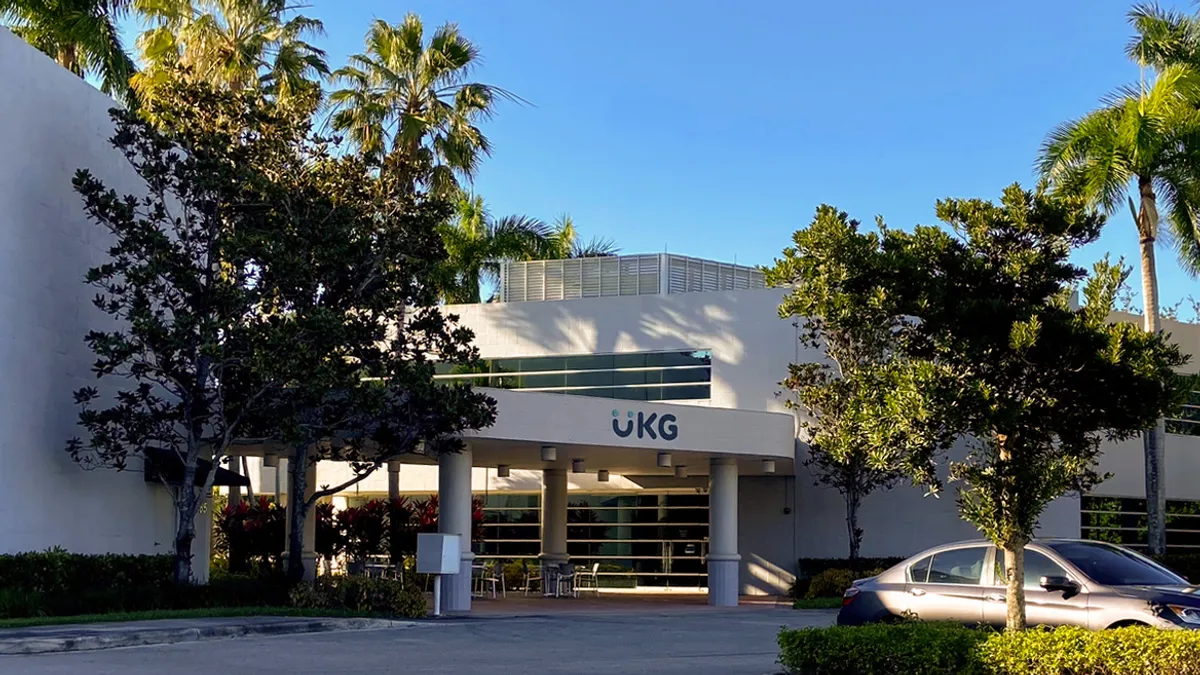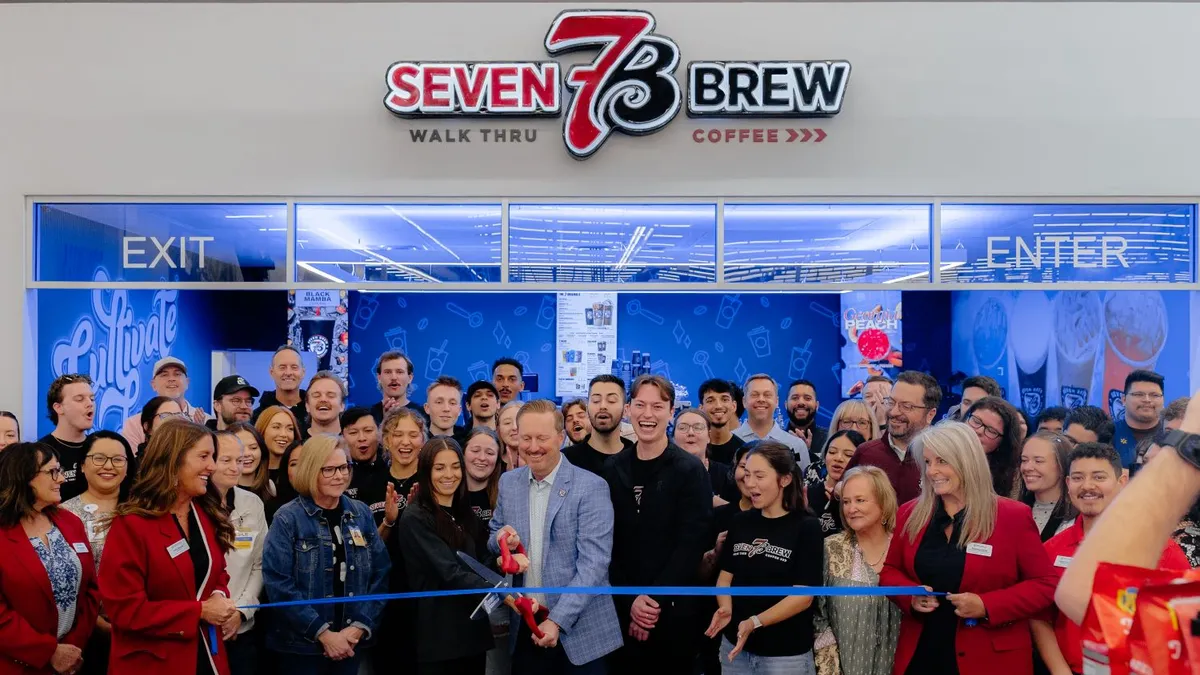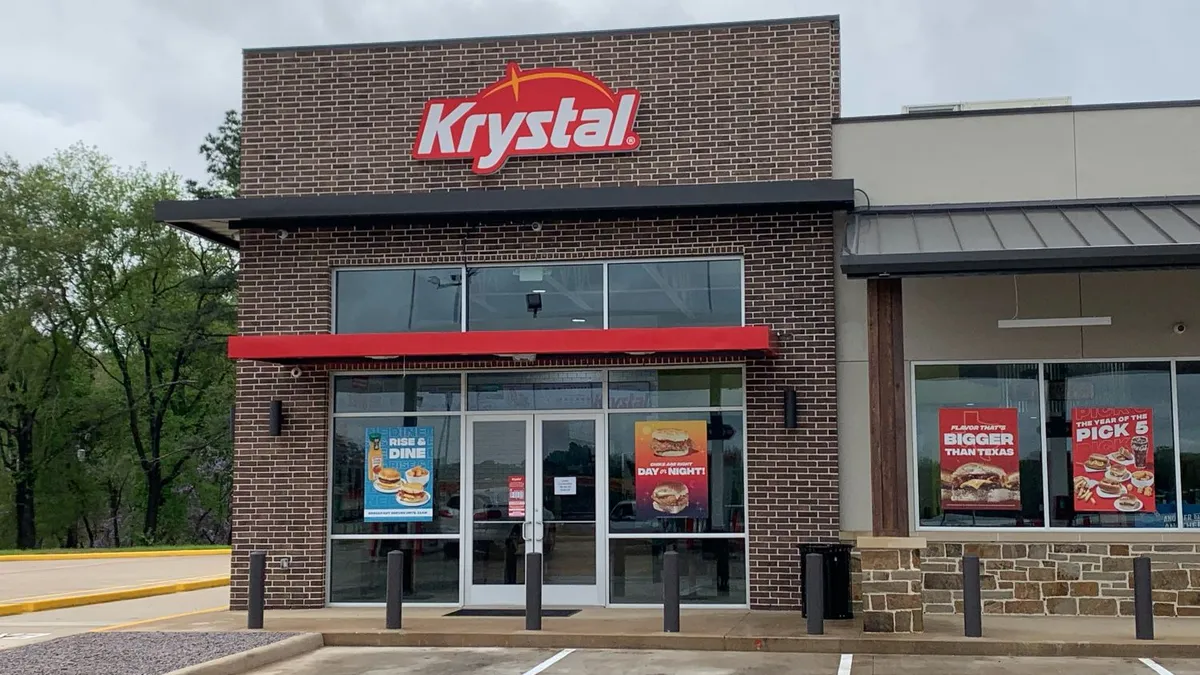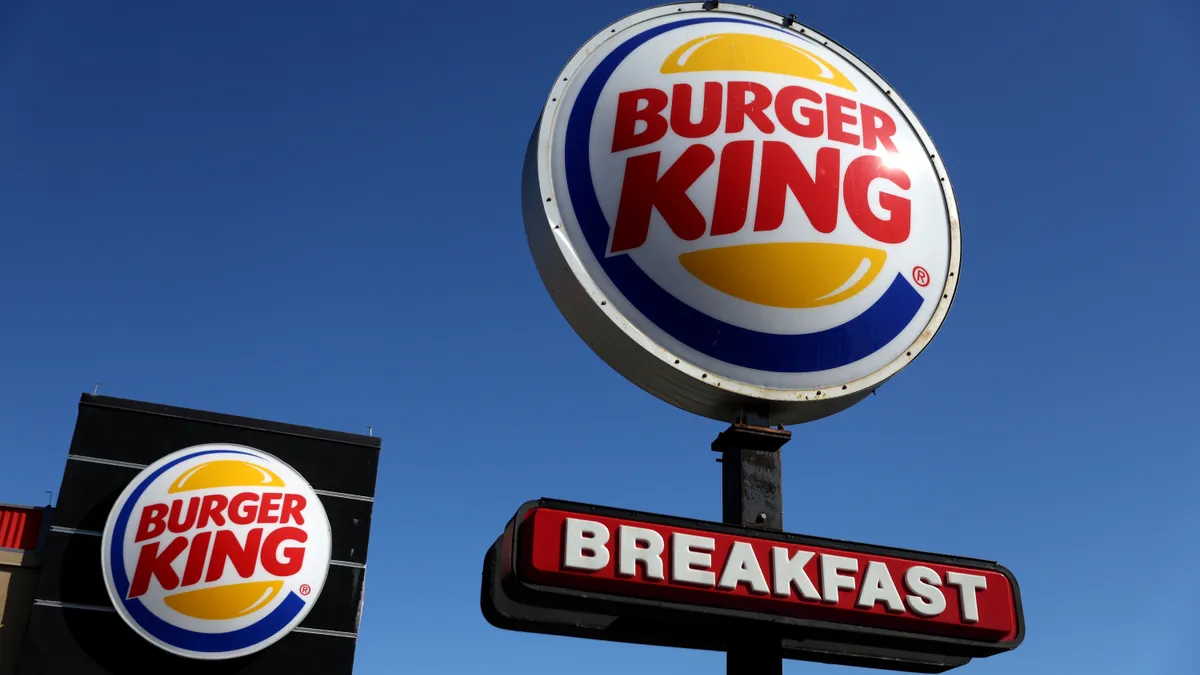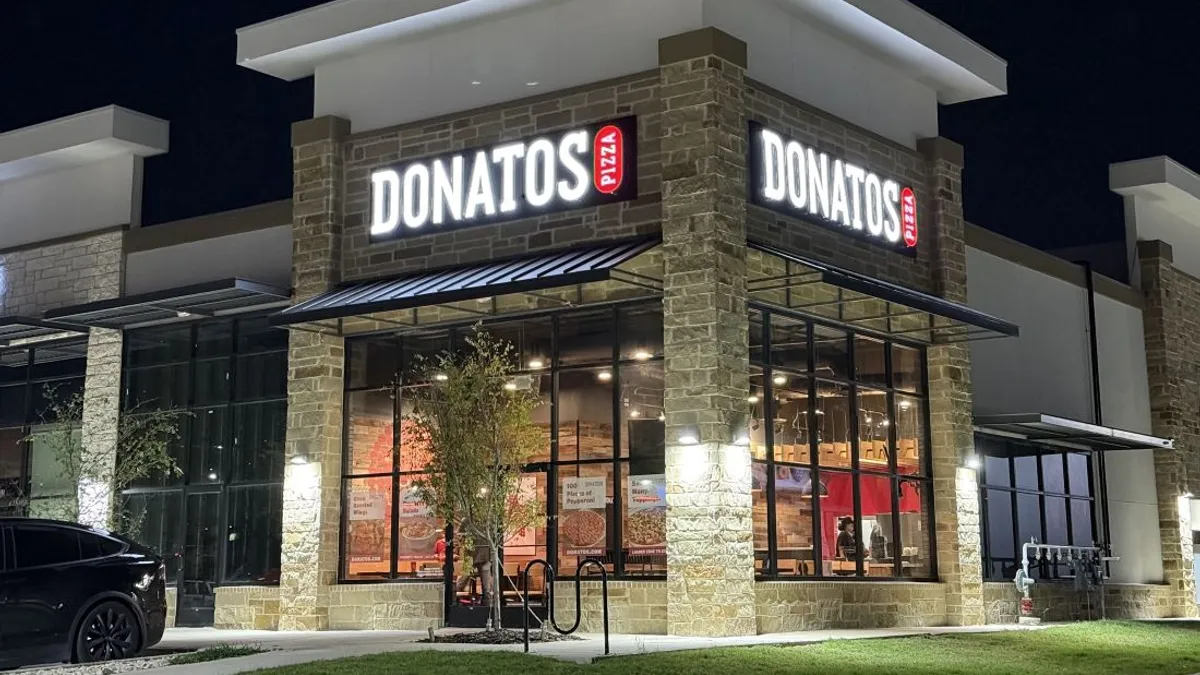P.F. Chang’s sued HR services provider UKG last month, alleging the HR vendor breached a contract between the parties when it lost the restaurant chain’s employee data and information that had been stored as part of UKG’s UltiPro service — now known as UKG Pro, according to court documents.
In the partially redacted Dec. 22 complaint, filed in the Delaware Court of Chancery, P.F. Chang’s said it changed vendors in 2020, ending its contract with UKG. In March 2021 the company requested that UKG provide a full copy and transfer of all databases it had stored on UltiPro. UKG confirmed it would pull the data for the transfer, per the suit (P.F. Chang’s China Bistro v. UKG, No. 2022-1174-SG (Del. Ch. Dec. 22, 2022)).
In May of that year, before the transfer was completed, P.F. Chang’s notified UKG of pending litigation against P.F. Chang’s by a separate party, and the company issued a litigation hold notice asking that UKG retain all of its data “until further notice.” UKG confirmed in June 2021 that while “decommissioning” — a process by which UKG would delete P.F. Chang’s data after the companies agreed to end their business together — had been scheduled for that month, it would pause the process until P.F. Chang’s completed the migration to a new provider.
UKG gave ‘false hope’
What seemed a mundane transaction between the two companies turned contentious just months after the initial transfer request.
P.F. Chang’s alleged that it first discovered some of its data had not successfully transferred from UltiPro in December 2021. A subsequent investigation revealed even more missing data, according to the suit.
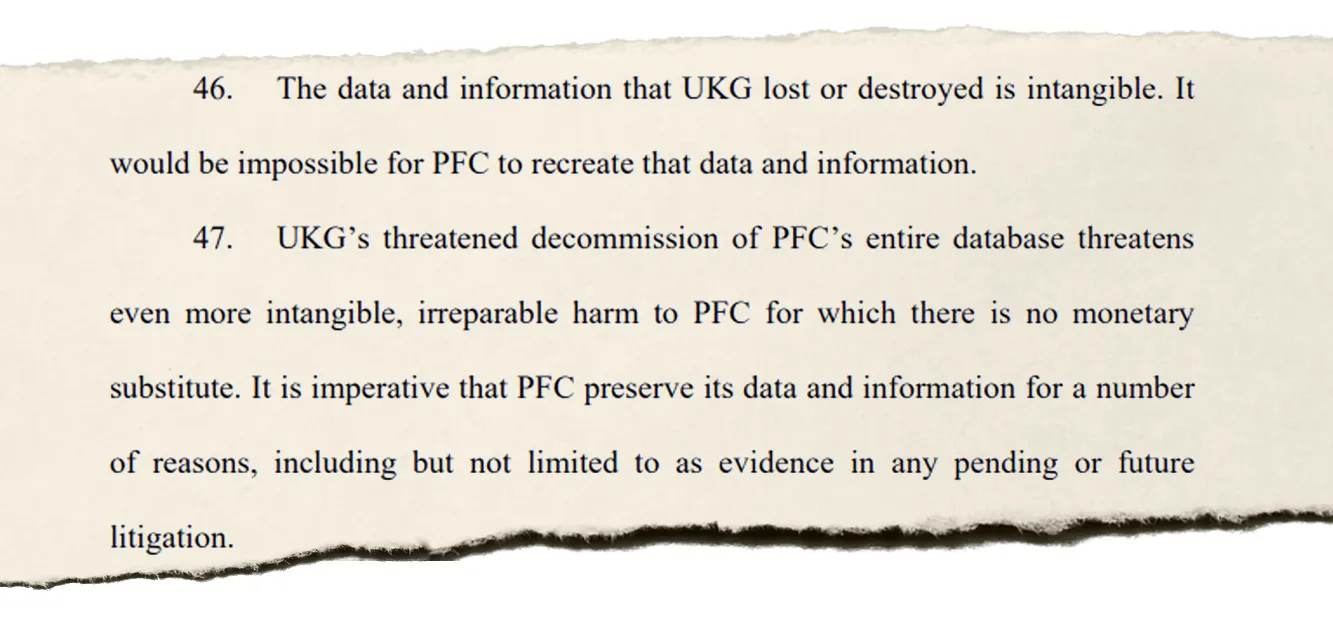
UKG initially made “repeated assurances that there was no problem,” but a representative allegedly contacted P.F. Chang’s in August 2022 “admitting that UKG had lost some of PFC [P.F. Chang’s] data,” per the complaint. The representative also allegedly informed P.F. Chang’s that delaying the decommissioning process “‘isn’t warranted as we do not have the data’” and said UKG intended to proceed with the decommissioning the following month.
Negotiations between the parties continued into the fall, with P.F. Chang’s issuing another litigation hold notice to UKG in November 2022.
“Between November and December 2022, UKG provided PFC [P.F. Chang's] with the false hope that they might be able to retrieve the missing data and information from UltiPro using some sort of extraction tool,” P.F. Chang’s said. “Despite those promises, UKG has been unsuccessful in retrieving PFC’s missing data and information.”
An attorney for P.F. Chang’s declined to comment on the suit or the scope of the data involved. However, a separate P.F. Chang’s legal filing on Dec. 22 provided additional clarity. That filing revealed UKG and P.F. Chang’s had been in contact about “missing employee data and information” stored in UltiPro.
Emails viewed by HR Dive portray a combative back-and-forth between attorneys for the two companies.
A Dec. 21 message between Craig Morgan, a Sherman & Howard attorney representing P.F. Chang’s in the suit, and Elizabeth Pitre, assistant general counsel at P.F. Chang’s, described a conversation that occurred earlier that day between attorneys for the companies. Morgan said in the email that UKG “feigned surprise and frustration” in response to P.F. Chang’s lawsuit and threatened him with sanctions.
“I smelled a rat,” Morgan wrote.
The email attached a copy of correspondence between Morgan and attorneys for both P.F. Chang's and UKG, including Sheryl Berkowitz, senior corporate counsel for UKG.
In one message, Berkowitz shared notes from the Dec. 21 conversation, stating that the companies had previously attempted to enter a tolling agreement — under which parties to a suit agree to suspend the statute of limitations for an agreed upon amount of time — but that UKG had not received a copy of any agreement from P.F. Chang’s. Berkowitz also said UKG’s legal team instructed the company to delay decommissioning of P.F. Chang’s database to December 2023.
“As I shared on the call, there is no outstanding or pending issue that would warrant this litigation or a temporary restraining order in light of recent events,” Berkowitz wrote. “At your earliest convenience, UKG expects that you will inform the court this issue had been resolved by the parties as of November 29, 2022.”
Morgan responded to Berkowitz’ email the same day. He denied that attorneys for P.F. Chang’s had been informed about the decommissioning delay, and instead alleged that, in a Nov. 18 message, Berkowitz said the decommissioning timeline had not changed and was scheduled to proceed on Dec. 31, 2022.
“That statement, and no formal written or verbal retraction of that statement, is what necessitated the lawsuit,” Morgan said. “Indeed, even today you felt it necessary to tell me that UKG’s position is that it has no duty to preserve, search for, or provide our client the information at issue.”
Morgan then asked whether UKG would be willing to commit in writing to toll the statutes of limitations for all claims for damages and refrain from deleting P.F. Chang’s data and information. HR Dive has not seen any subsequent emails
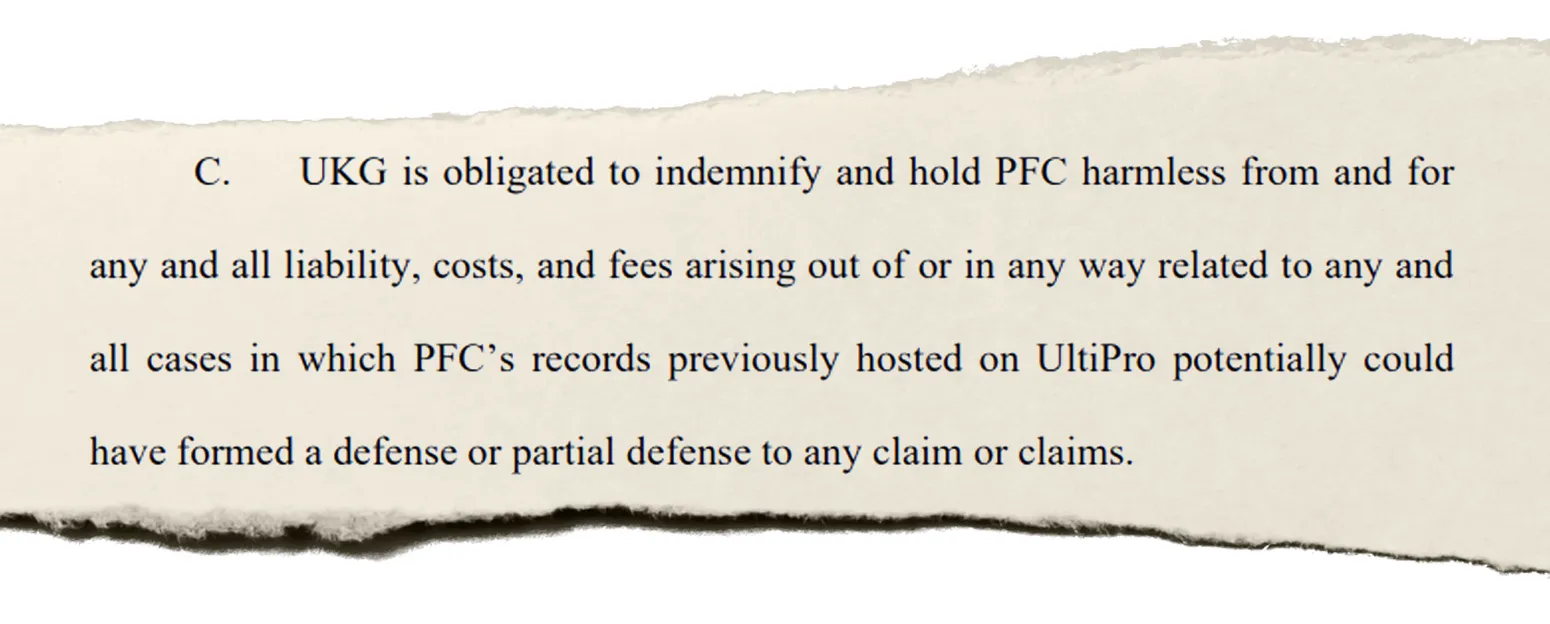
In its Dec. 22 complaint, P.F. Chang’s requested an injunction that would prevent UKG from deleting its data and information, as well as monetary damages, attorneys fees and expert witness fees. It also asked that the Delaware Court of Chancery declare that UKG “is legally required to immediately assume the complete defense of PFC in any and all cases in which PFC records previously hosted on UltiPro potentially could have formed a defense or partial defense, to any claim or claims.”
In an email to HR Dive, UKG said that it does not comment on pending litigation. Berkowitz did not respond to a request for comment.
Pitre did not respond to a request for comment. In an email to HR Dive, Morgan also said P.F. Chang’s does not comment on pending litigation.
Cautionary tale for employers
The suit is the latest in a year of headaches for UKG. The firm made national headlines in December 2021 when a ransomware attack affected its Kronos Private Cloud product. A widespread outage had many employers scrambling as attorneys advised them to track employee hours manually and shift to backup pay methods.
The outage took weeks to resolve and spawned a number of lawsuits. A transit employee in New York City, for example, filed a putative collective action over alleged overtime violations stemming from the outage. Honda and others saw similar claims. Some suits are still pending, and some settlements have emerged. Pepsi settled with its workers for nearly $13 million.
A source familiar with the matter said the suit between P.F. Chang’s and UKG is not related to last year’s ransomware incident.
The dispute may serve as a cautionary tale for employers, according to Kevin Jackson, senior counsel at Foley & Lardner. Vendors like UKG, he said, maintain the data necessary to perform timekeeping and payroll functions within their own databases, usually on cloud-based servers. But employers might not house this data on their own servers. As a result, access to this data is based on maintaining contractual relationships with vendors.
These limitations can be especially problematic if the employer is targeted in a wage and hour class action lawsuit, Jackson said. Discovery for these suits may involve producing years worth of payroll and timekeeping records, a process that Jackson said can be complicated if employers do not have data held by vendors with whom they no longer do business.
By the time an employer needs to produce years worth of data, the former vendor may have already deleted it in accordance with its own data deletion policies. “As an employer, you’re out of luck at that point,” Jackson said.
Jackson said the takeaway for employers is to ensure that, when contracting with a vendor, the vendor will maintain the employer’s records for “at least the period of time that the law requires,” which can vary by jurisdiction. The employer also may want to confirm that it can obtain timekeeping and payroll reports when needed and maintain local copies of the same data.
And even if an employer does not have to deal with pending litigation, it may want a complete record of time and payroll from the vendor before switching to a different vendor, as P.F. Chang’s requested, Jackson added.
“It’s much easier to work with a company that you’re currently contracted with,” he said.



